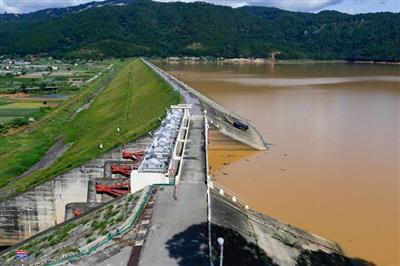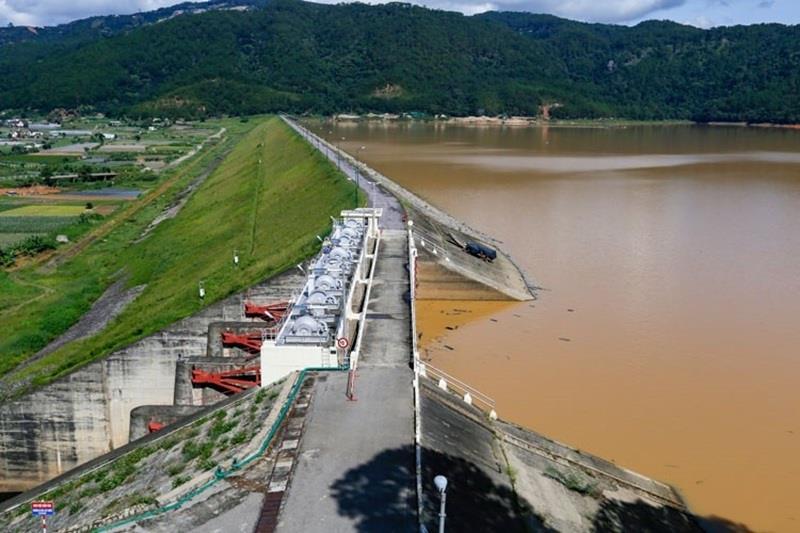
81% decline in migratory fish due to habitat loss
22/05/2024TN&MTA study warns of a catastrophic global decline in migratory fish populations, which have plummeted by over 80% since 1970. This dramatic drop, primarily due to dams, mining, water diversion, pollution, and habitat loss, threatens both humans and ecosystems. The findings call for stronger monitoring and enhanced efforts in river protection and restoration.

81% decline in migratory fish due to habitat loss (Photo: National Geographic)
Freshwater species and fish, especially migratory, at high extinction risk
The latest update on the Living Planet Index (LPI) reveals that Latin America and the Caribbean, followed by Europe, have witnessed the most significant declines in migratory freshwater fish populations. These findings, drawn from data on 1,864 populations of 284 native migratory freshwater fish species, underscore the alarming situation faced by these species. Supported by organizations like The Nature Conservancy, WWF, World Fish Migration Foundation, and Wetlands International, the study highlights the urgent need for conservation efforts.
Migratory fish species are under immense threat, with nearly one in three freshwater species and a quarter of freshwater fish species facing extinction. Despite existing tools and commitment, the collapse of these populations remains a significant concern.
Latin America and the Caribbean have experienced a staggering 91% decline in migratory fish populations since 1970, while Europe has seen a 75% decrease. In contrast, Asia and Oceania have recorded a lower decline of 28%, but the lack of comprehensive data may underestimate the true extent of the decline.
In North America, despite a 35% decrease in migratory fish populations, historical factors such as excessive harvesting and dam construction have contributed significantly to the decline. However, post-1970 trends have stabilized to some extent.
Similarly, in Europe, migratory freshwater fish populations have declined by 75% due to barriers like dams obstructing natural migration routes. These species, crucial for ecosystem health and supporting livelihoods worldwide, require urgent conservation attention.
Call for action to address catastrophic migratory fish declines
The research has highlighted alarming declines in migratory fish populations, prompting calls for urgent action. Authors of the latest report advocate for improved long-term monitoring, restoration and protection of rivers, and the removal of barriers to migration.
Efforts are underway to explore renewable energy alternatives to the numerous hydropower dams planned globally. Last year alone, a record 487 barriers were dismantled across 15 European countries.
Experts emphasize the critical need to prioritize river conservation, restoration, and connectivity to safeguard migratory fish species. Despite existing tools and commitment, the collapse of these populations remains a pressing concern.
The extent of decline, both regionally and globally, remains shocking, as emphasized by Dr. David Jacoby from Lancaster University. Threats such as barriers to migration, pollution, water abstraction, and climate change are exacerbating the situation.
According to The Guardian, Dr. Anthony Acou, from the National Research Institute for Agriculture, Food, and the Environment (INRAE) in France, stresses the importance of understanding the cumulative impact of pressures on both marine and freshwater habitats. This understanding is crucial for implementing effective management measures.
While the downward trend in migratory fish populations has been consistent over the last three decades, it has not affected all species uniformly. Habitat loss and degradation, particularly due to dam construction and other barriers, are identified as the primary threats.
To bridge the data gap and enhance protection and restoration efforts, increased international cooperation is essential. Efforts to expand the Convention on Migratory Species (CMS) to include more freshwater migratory fish species are underway, reflecting a global commitment to conservation.
The recent global initiative announced by the 14th Conference of the Parties to the CMS aims to identify, protect, and connect critical areas for migratory species. This initiative underscores the need to address the threats facing migratory fish and other species to ensure their survival and the health of freshwater ecosystems.
Ngoc Huyen (The Guardian, Carbon Pulse)
















